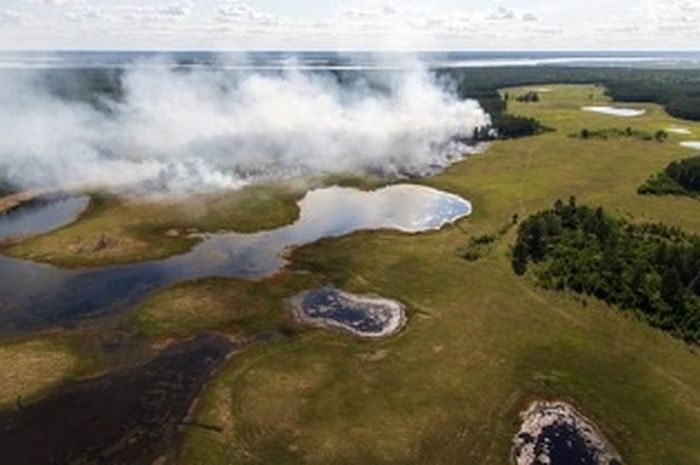Continuous sunny weather and climate change that occurred for months made Siberia experience extreme heat.
In addition to producing high Arctic temperatures in June, heat has ignited forest fires, including tundra fires.
The fire in this normally cold and wet landscape is alarming to ecologists and climate scientists. Because the Arctic is undergoing rapid changes that can have a major impact on local and global consequences.
The fire itself can also exacerbate global warming by burning deep into the soil and releasing carbon that has accumulated as frozen organic material for hundreds of years.
"This is not yet a major contribution to climate change," said Thomas Smith, an environmental geographer at the London School of Economics at National Geographic. "
Around mid-June, fires began to spread throughout Siberia, said Mark Parrington, a senior scientist at the Navel of Europe's Mid-Term Weather Forecast.
Scientists were also shocked by the fire that burned the ecosystem. Smith has investigated it using a combination of land cover maps and satellite data. He found that fires engulfed northern boreal forests and carbon-rich peatlands. In all cases, the burned ecosystem is on frozen ground which consists of permafrost.
Meanwhile, the tundra fire is not the first thing. A fire in the northern tundra happened in 2003.

No comments:
Post a Comment